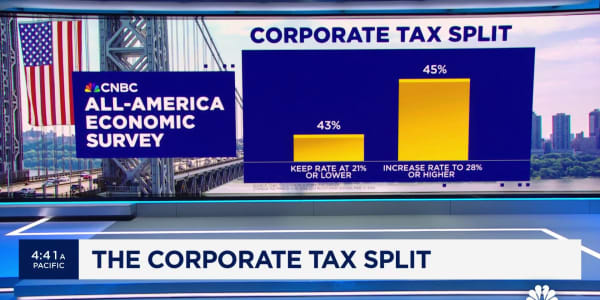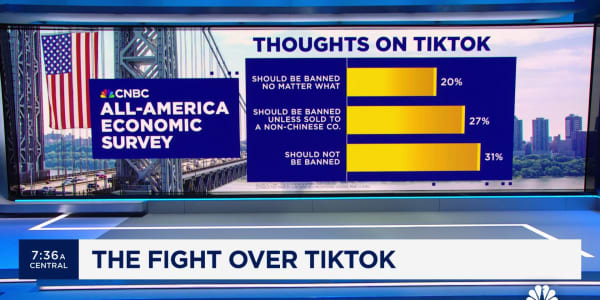Americans split on almost every important issue facing Washington, but they agree on this much: Republicans and Democrats share blame for the failure of the Congressional "super committee," and the resulting automatic budget cuts are unacceptable.
In CNBC's new All-America Economic Survey, a robust 62 percent majority blamed the two parties equally for the committee's inability to reach a compromise on $1 trillion to $2 trillion in deficit reduction over the next 10 years. That includes more than 70 percent of Republicans and independents, though nearly half of Democrats and a majority of Occupy Wall Street supporters blame Republicans in particular.
Moreover, Americans overwhelmingly reject the consequences of that failure — $1.2 trillion in automatic budget cuts, divided equally between military and non-military programs. In the legislative deal Democrats and Republicans struck to create the super-committee, those cuts were intended to be so unpopular that they would force super committee members to reach a bi-partisan deal.
The survey shows that Washington got it half right — the part about the unpopularity of automatic cuts. Just 16 percent of Americans favor proceeding with the cuts, which are due to take effect in January 2013. Some 25 percent prefer an alternative plan with deeper budget cuts.
A 43 percent plurality favors an alternative plan containing fewer budget cuts. In a reflection of the limited appetite for cutting defense at a time when the nation is at war, even a 39 percent plurality of Republicans prefer fewer cuts than the automatic reductions call for.
That broad opposition to the automatic cuts underscores the opportunity Congress has over the next year to devise a new deficit-reduction plan.
But the survey shows that a broad majority of Americans agree it won't happen. Fully 52 percent call it "very unlikely" Congress will reach a spending-cut deal in coming months, while another 21 percent call that "somewhat unlikely."
Where consensus breaks down is on the issue of income inequality, an issue that has become embroiled in the broader debate about the economy, taxes, and federal spending programs. Asked to choose one factor that's most responsible for the widening gap between high-income workers and everyone else, American split among economic and political factors.
On the economic side, some 22 percent blame excessive salaries and bonuses for corporate executives. Another 16 percent cite economic shifts that have reduced manufacturing jobs and increased demand for highly skilled workers. Some 15 percent cite competition from overseas, while 7 percent point toward wage and hiring practices by U.S. companies.
On political causes, 16 percent point toward policies of the Obamaadministration. Another 14 percent blame policies of the Bush administration.
Nor have those attitudes changed much as a result of the financial crisis and recent recession . The results are substantially similar to responses to the same question in Sept. 2006.





